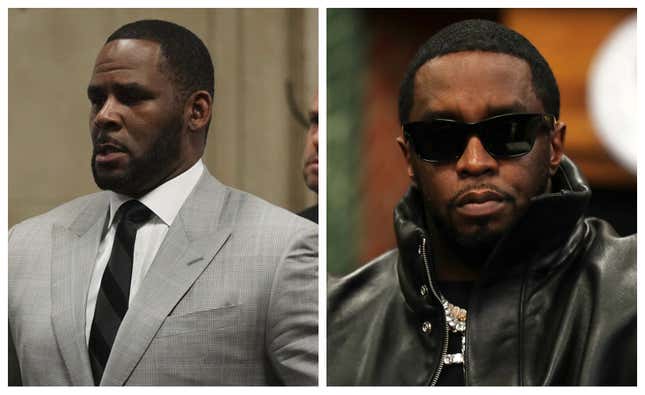
How did a 1910 law created for protecting white women from becoming sex slaves wind up being used against Sean “Diddy” Combs in his federal sex trafficking case? Trust us, there’s a reason...and it’s also not the first high-profile case in which we’ve seen it applied.
Combs was slammed with a federal indictment citing charges of racketeering, sex trafficking and transportation to engage in prostitution on Sept 17. You know where else we saw these charges appear? They were also cited in the case against R&B singer R. Kelly in 2021. The common thread between the two — and the weapon federal prosecutors plan on wielding against Combs — is the Mann Act.
What is The Mann Act?
What was originally known as White-Slave Traffic Act of 1910 was a federal law created to make the use of commerce to transport women for “immoral purposes” illegal, according to Cornell Law School’s Legal Information Institute. Back then, the law spawned from the investigation into immigrant prostitution and the claim immigrant men lured young white women into what they called “white slavery.”
However, the term “immoral purpose” was broadly applied in many cases, especially consensual sexual relations between white women and Black men.
By 1986, the Act had a few amendments: 1) keeping consensual premarital and interracial relations from facing prosecution, 2) encapsulating issues of child pornography and 3) replacing “immoral purpose” with “any sexual activity for which any person can be charged with a criminal offense.” By 2021, we saw the Black community’s cherished love song writer go down under this law.
R. Kelly’s Crime
A federal jury convicted the “Bump n Grind” singer in September of 2021 on nine counts - eight of which were violations of the Mann Act. Prosecutors alleged Kelly abused his celebrity status to “target girls, boys and young women for his own sexual gratification” citing incidents dating back to 2009.
In one incident, Kelly was accused of arranging for a 16-year-old girl to move into his Olympia Fields, Ill. residence for illegal sexual activity, according to the Department of Justice. He also arranged the transportation of a 17-year-old girl from New York City to Oakland for the same crimes. Both girls were under the age of consent.
The DOJ also said he flew two more young women across the country to meet him for the sake of illegal sexual activity while also failing to notify them that he had contracted an incurable sexually transmitted disease.
Diddy’s Allegations
As for Combs, the DOJ alleges the same as they did Kelly — relying on his power as a “leader of a multi-faceted business empire” to abuse and exploit women. From 2008, the Feds claim Combs transported sex workers across state lines to engage in frequent and sometimes “days long” sexual activities which were labeled as “Freak Offs.”
It is still under investigation whether these individuals were of age to consent in the respective states they were allegedly transported to. However, prosecutors claim that upon the transportation of those individuals, Combs committed crimes including physical abuse, sexual abuse and the distribution of narcotics while using his goons to conceal the acts from law enforcement.
Well, What’s Next?
Combs’ defense attorney, former Manhattan Assistant District Attorney Marc Agnifilo, revealed a bit of his angle for fighting the allegations by suggesting the relations between Combs and alleged victims were consensual.
Specifically, he targeted the sex trafficking claim made in singer Casandra “Cassie” Ventura’s lawsuit where she alleged Combs would fly in male sex workers to perform acts with her. In a Sept. 17 hearing, Agnifilo said upon interviewing the male sex workers, they denied nonconsensual acts as well as any participants being too “drunk or high” to consent.
“But because Mr. Combs provided for this woman, because they were in love, he was in love with her and she with him, that somehow this exerted some sort of control that overwhelmed her free will,” stated Agnifilo according to court documents. “Does everybody have experience with being intimate this way? No. Is it sex trafficking? No, not if everybody wants to be there.”
Combs entered a not guilty plea but was denied bail by a federal judge. He waits for his Oct. 9 hearing in the Metropolitan Detention Center in Brooklyn.

